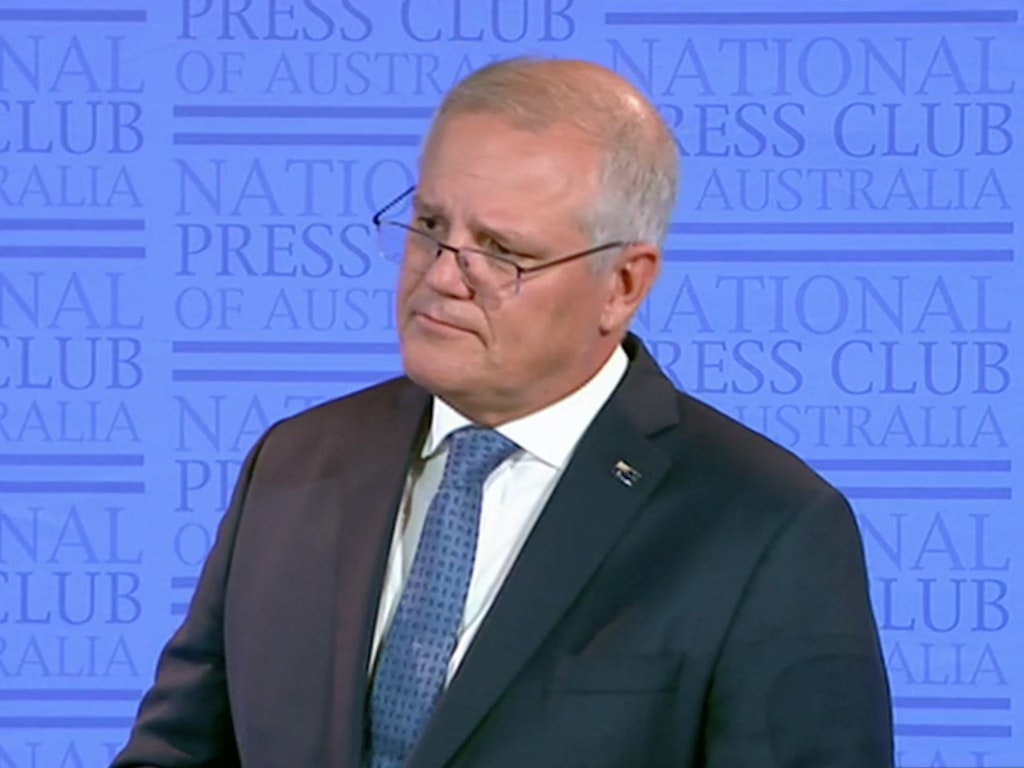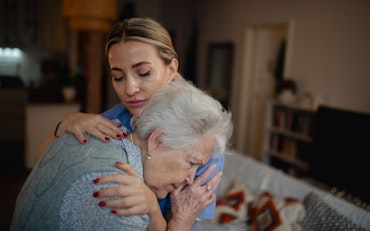COVID-19 vaccines: What you need to know
In a bid to protect Australians and stop the spread of COVID-19, the Federal Government is planning to invest an extra $1.9 billion into the vaccine rollout, beginning in late February, to provide free vaccinations to all Australians and promote confidence in the new vaccines.
![<p>Everyone in Australia will be able to receive the vaccine if they want to. However, when they can receive the vaccine is a different matter. [Source: iStock]</p>](https://agedcareguide-assets.imgix.net/news/articles/COVID-19-vaccine-what-it-means-1_2_2021.jpg?fm=pjpg&format=auto&w=550&q=65)
Everyone in Australia will be able to receive the vaccine if they want to. However, when they can receive the vaccine is a different matter. [Source: iStock]
At the National Press Club on Monday, 1 February, Prime Minister Scott Morrison explained what will be occurring with the vaccination process and the importance of as many Australians as possible receiving the vaccine.
“We need to prioritise the most vulnerable and those most likely to experience the disease, as well as frontline workers,” says PM Morrison.
He outlined how he wants to build up towards protecting the entire community by the end of the year through the vaccination policy.
But what will the COVID-19 vaccines mean for Australians? How will it be coordinated and rolled out to the whole country?
What’s the plan?
The Government unveiled its COVID-19 Vaccination Policy in November last year and started outlining the whole policy over January. As February is now here, Government bodies and medical professionals are preparing for the huge vaccination plan.
There are five phases of the vaccine rollout, allowing the most vulnerable and frontline workers access to the COVID-19 vaccines first.
From there, other priority groups will be allowed to start receiving the vaccine. PM Morrison believes that most Australians will be vaccinated by October.
The total bill for funding COVID-19 vaccines and treatments in Australia will reach $6.3 billion.
The success of the vaccine rollout depends on the test results of vaccines that may be used, any outbreaks in Australia, and whether the manufacturing demands can be met.
Federal Government also announced on Monday that COVID-19 vaccine production will begin soon in Australia at the CSL Manufacturing Plant in Melbourne.
Who can receive the vaccine?
Everyone in Australia will be able to receive the vaccine if they want to. However, when they can receive the vaccine is a different matter.
Depending on the priority group you are in, you may be waiting a while for the vaccine.
There are five phases of the vaccine, which is sorted into priority groups:
-
Phase 1a
Quarantine and border workers, frontline health care worker sub-groups for prioritisation, aged care and disability care staff, and aged care and disability care residents.
A total of 1.4 million doses -
Phase 1b
Elderly adults aged 80 years and over, elderly adults aged 70-79 years, other health care workers, Aboriginal and Torres Strait Islander people aged 55 and over, younger adults with an underlying medical condition including those with a disability, and critical and high risk workers including defence, police, fire, emergency services, and meat processing.
A total of 14.8 million doses
-
Phase 2a
Adults aged 60-69 years, adults aged 50-59 years, Aboriginal and Torres Strait Islander people aged 18-54, and other critical and high risk workers.
A total of 15.8 million doses -
Phase 2b
Balance of adult population, and to catch up any unvaccinated Australians from previous phases.
A total of 16 million doses -
Phase 3
Children under the age of 16 if recommended for the vaccine
A total of 13.6 million doses
The Government says the prioritisation groups may change depending on reviews on the data and evidence for vaccines.

When can I get the vaccine?
There is no specific date outlined for the vaccines to be available. The Federal Government is only suggesting it is likely that vaccine rollout will begin in late February.
Additionally, you will need to wait for your prioritisation group to be announced for the next vaccine run before you can go and get the vaccine.
Getting the vaccine is completely free.
Is it mandatory?
No, getting a COVID-19 vaccine is not mandatory. The vaccine has been made voluntary for all citizens by the Government.
However, the Government is strongly recommending that all Australians get vaccinated.
There is some concern around what this means for aged care workers, as it is currently mandatory for everyone entering aged care to have a flu vaccination.
While the vaccine is not mandatory for aged care workers, PM Morrison has not ruled out the possibility of COVID-19 vaccinations becoming compulsory in the future.
Where will the vaccines be available?
Government has organised thousands of locations to be vaccination stations for communities in both metropolitan and regional and rural areas in Australia.
This includes hospitals, pharmacies, doctors clinics, respiratory clinics Aboriginal Health Services, and a specialist surge workforce.
You will need to book in for the vaccine and travel to your vaccine destination when your phase has been announced.
What vaccines are there?
Currently, Australia has entered into four agreements with vaccine manufacturers. This includes Pfizer-BioNTech, AstraZeneca/Oxford, Novavax, and COVAX facility.
The Pfizer vaccine has already been approved by the Therapeutic Goods Administration (TGA) for people aged 16 and over.
The Pfizer vaccine requires two doses at a minimum of 21 days apart. So far, the efficacy of the trials are at 95 percent, which currently makes it one of the best COVID-19 vaccines on the market.
Around 10 million doses have been bought by the Federal Government.
The AstraZeneca vaccine is still being tested by the TGA for whether it is safe and effective against COVID-19. If approved, the second dose of the vaccine will be provided between four to 12 weeks after the first dose.
Australia has secured 53.8 million doses of this vaccine, with 3.8 million doses expected to arrive in Australia in early 2021.
The Novavax vaccine is still in development and in its third phase of clinical trials. If approved, it will be made available in the middle of the year with 51 million doses already secured.
Similar to the Pfizer vaccine, Novavax requires two doses of the vaccine about 21 days apart.
Federal Government has joined with the COVAX Facility initiative as an effort to support fair and equitable access to COVID-19 vaccines. Australia can purchase vaccine doses as they are made available.
It is expected that by the end of 2021, there will be 2 billion doses available for the world. The Government has already provided a $123.2 million payment for 25 million doses of the vaccines for the Australian population. This means 50 percent of the population can receive 2 doses.
What issues are there with the vaccines?
At the moment, the data on these vaccines, while safe, are still to be projected on how successful they may be in different priority groups.
The AstraZeneca COVID-19 vaccine has highlighted uncertainty about the efficacy of the vaccine in people aged 65 and over as there is lacking data from test subjects.
Professor Bruce Thompson, Dean of the School of Health Sciences at Swinburne University, says it is too early for some of these vaccines to have clarity around the efficacy.
“At this point it is not completely clear how effective the three current vaccines are in the older group. The reason being that the numbers of subjects that were used in the original trials in this age group were small,” explains Professor Thompson.
“What we do know is that the vaccine is likely to be safe and provide some level of protection. However, that is the very reason why the TGA is saying with the recently approved Pfizer vaccine, that people who are in older age groups need to consult with their GP about the risks versus benefits.
“People in older age groups can have multiple conflicting medical conditions that need to be taken into account when making such decisions.”
When will the vaccines arrive?
The road ahead to getting vaccines will be difficult, as the Government has already experienced turbulence with getting the vaccines to our shores.
The European Union (EU) recently provoked backlash from non-EU countries and the World Health Organisation (WHO) after placing tighter restrictions on vaccine manufacturers exporting outside of the EU.
This could affect Australia’s access to the Pfizer and AstraZeneca vaccines, which Australia has already secured agreements for.
The Federal Government has said it will do everything in its power to make sure their agreements are upheld and for Australians to receive the vaccines.
Vaccine manufacturers are also considering moving production outside of the EU to make sure they are not hindered by the new EU laws.
What questions do you have about the COVID-19 vaccines and how it is going to work? Tell us in the comments below.










